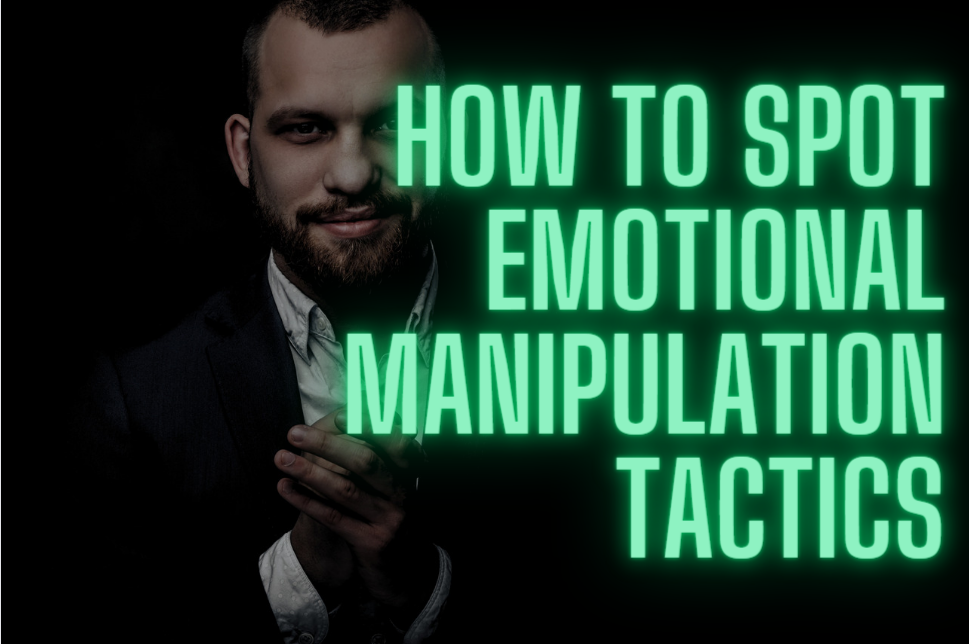Introduction
Emotional manipulation is a subtle yet powerful form of psychological control that can occur in various relationships, including friendships, family bonds, and romantic partnerships. Emotional manipulators use underhanded tactics to influence others, often playing on their emotions, insecurities, and vulnerabilities. Learning to recognize the hidden tactics of emotional manipulators is crucial for maintaining healthy relationships and protecting oneself from toxic behavior. In this article, we will delve into some common tactics used by emotional manipulators and offer tips on how to spot them.
Gaslighting
Gaslighting is a form of psychological manipulation where the manipulator attempts to make the victim doubt their perceptions, memories, or even sanity. Emotional manipulators use gaslighting to create confusion and uncertainty, causing the victim to question their reality. Some signs of gaslighting include:
- The manipulator denying or dismissing the victim’s feelings and experiences
- The manipulator accusing the victim of being overly sensitive or irrational
- The manipulator providing false information or altering facts to make the victim doubt their memory
To counter gaslighting, it’s essential to trust your instincts, seek external validation, and maintain a clear record of events and conversations.
Love Bombing
Love bombing is a tactic employed by emotional manipulators, particularly in the early stages of a relationship, where they shower the target with excessive affection, praise, and attention. The goal of love bombing is to create a sense of obligation and dependence in the target. Some signs of love bombing include:
- The manipulator expressing intense feelings of love and commitment very quickly
- The manipulator bombarding the target with constant communication and compliments
- The manipulator using gifts and grand gestures to make the target feel indebted
To protect yourself from love bombing, maintain boundaries, take your time in getting to know the person, and observe how they handle conflict or disagreement.
Playing the Victim
Emotional manipulators often play the victim, portraying themselves as helpless or unfairly treated to gain sympathy and control over others. By playing the victim, manipulators can avoid taking responsibility for their actions and manipulate others into providing support, validation, or assistance. Some signs of the victim mentality include:
- The manipulator constantly complaining about their problems without taking steps to address them
- The manipulator blaming others for their failures or misfortunes
- The manipulator using guilt to coerce others into helping them or meeting their demands
To counteract the victim mentality, establish boundaries, focus on solutions rather than problems, and avoid getting drawn into the manipulator’s drama.
The Silent Treatment
The silent treatment is a passive-aggressive form of emotional manipulation in which the manipulator withdraws communication or affection to punish, control, or manipulate the target. By withholding emotional connection, the manipulator aims to make the target feel guilty, anxious, or desperate for resolution. Some signs of the silent treatment include:
- The manipulator refusing to respond to messages or engage in conversation
- The manipulator displaying cold or distant body language
- The manipulator using the silent treatment to avoid addressing issues or taking responsibility
To address the silent treatment, remain calm, avoid chasing the manipulator for attention, and initiate a conversation when they are ready to communicate.
Triangulation
Triangulation is a manipulation tactic where the manipulator introduces a third person into the relationship dynamic to create jealousy, competition, or insecurity. This tactic allows the manipulator to maintain control by pitting people against one another or using the third person to validate their perspective. Some signs of triangulation include:
- The manipulator frequently comparing the target to others or discussing their relationships with other people
- The manipulator enlisting a third party to communicate on their behalf or relay messages
- The manipulator playing people against each other to maintain power and control
To counter triangulation, establish direct communication with the parties involved, avoid engaging in comparison or competition, and focus on building trust and transparency in your relationships.
Emotional Blackmail
Emotional blackmail is a form of manipulation where the manipulator uses guilt, fear, or obligation to control and coerce their target. Emotional manipulators may threaten to harm themselves or others, withhold affection, or use guilt-tripping to get what they want. Some signs of emotional blackmail include:
- The manipulator making unreasonable demands and portraying non-compliance as a sign of disloyalty or selfishness
- The manipulator using threats or ultimatums to force the target into submission
- The manipulator exploiting the target’s vulnerabilities or insecurities to get their way
To resist emotional blackmail, establish clear boundaries, communicate openly about your feelings and needs, and seek support from trusted friends or professionals.
Projecting
Projecting is a defense mechanism where the manipulator attributes their negative traits, feelings, or actions to the target, often to avoid responsibility or maintain a favorable self-image. Emotional manipulators may accuse their target of being controlling, selfish, or dishonest when, in reality, they exhibit these behaviors themselves. Some signs of projecting include:
- The manipulator accusing the target of actions or emotions that better describe the manipulator’s behavior
- The manipulator becoming defensive or hostile when confronted with their inconsistencies or contradictions
- The manipulator shifting blame onto the target for their own mistakes or shortcomings
- To deal with projection, trust your instincts, maintain a clear record of events, and focus on addressing specific behaviors rather than engaging in counter-blame.
Conclusion
Emotional manipulators use a range of hidden tactics to control and exploit others, often leaving their targets feeling confused, drained, and disempowered. By recognizing the signs of emotional manipulation and implementing strategies to counteract these tactics, you can protect yourself from toxic behavior and foster healthier relationships. Remember, it’s essential to prioritize your well-being, establish boundaries, and seek support from trusted friends, family, or professionals when dealing with emotional manipulators.





